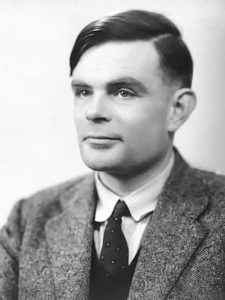The GDC Turing Data Dictionary Release 3.4 includes the following features:
- Additional clinical data elements from the Cancer Genome Atlas (TCGA) Program
- New molecular for the Childhood Cancer Data Initiative (CCDI) to support data harmonization
- New workflow type for the MuSiCal mutational signature workflow
- Additional enumerated values for comorbidities and risk factors in other clinical attributes
- Updated links to the NCI Cancer Data Standards Repository (caDSR)
- Removal of several properties that have been deprecated and have had their data moved to other properties
- Changes to the demographic node
This release honors the legacy of Alan Turing, continuing the GDC tradition of celebrating pioneering scientists.
For detailed information, visit the GDC Data Dictionary Release Notes.
We value your feedback! Share your thoughts on GDC 2.0 by contacting us at support@nci-gdc.datacommons.io.

Alan Turing was a pioneering British mathematician, logician, computer scientist, and cryptanalyst who is considered the father of modern computing and artificial intelligence. In 1948, Turing developed the concept of the Turing machine, a theoretical model of computing, and is widely known for his role in breaking the German Enigma code in World War II.
Photo and content available in the Public Domain, https://commons.wikimedia.org/wiki/File:Alan_Turing_(1951).jpg (Elliott & Fry, Public domain, via Wikimedia Commons)
